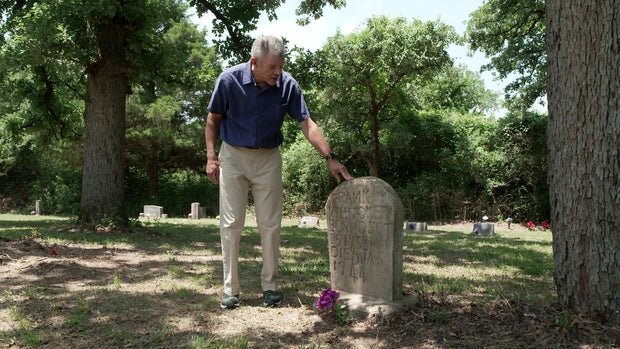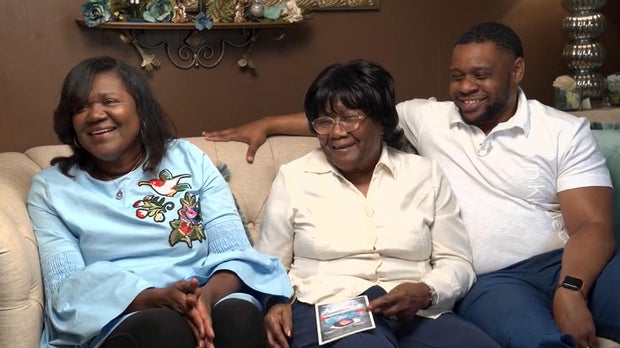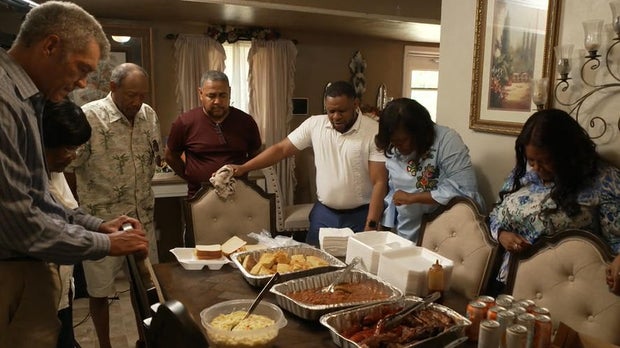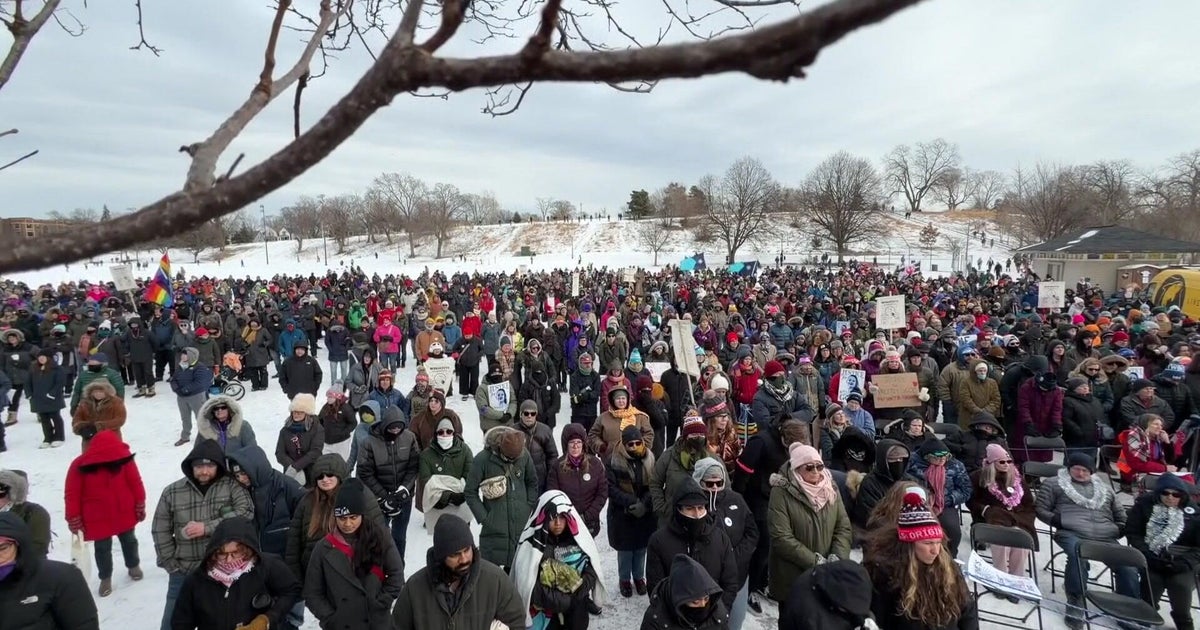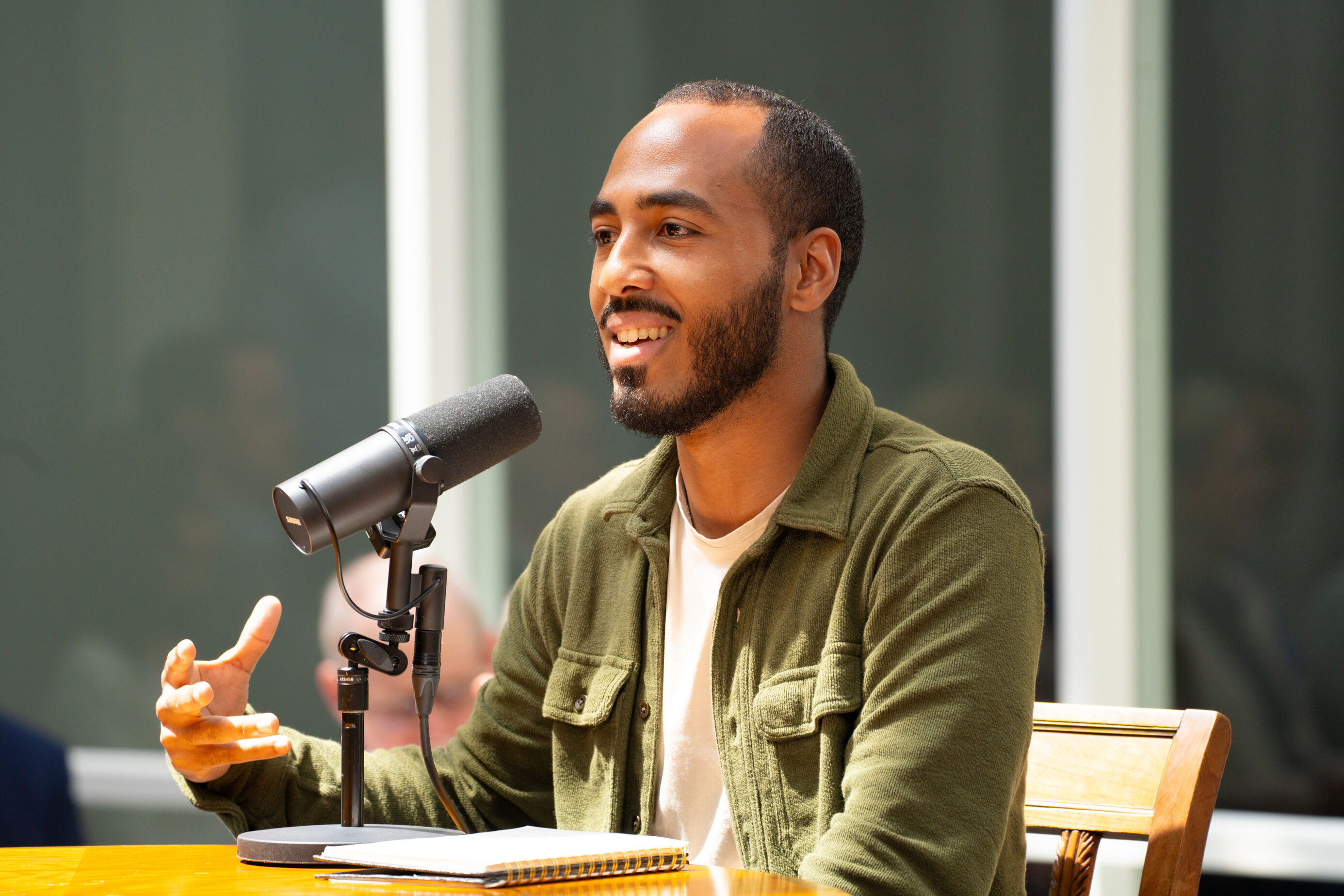A family journey to the origin of Juneteenth
Today is not only Father's Day, it's also Juneteenth, the day which brought freedom to the last of all enslaved people in the United States. It's also our newest federal holiday. That the two coincide has personal significance for our Mark Whitaker:
Juneteenth celebrations have already started this weekend in Galveston Texas, the city where the holiday has its roots. It was 157 years ago today, on June 19, 1865, when Union Gen. Gordon Granger went from the piers to downtown Galveston reading General Order Number 3, which said that "all slaves are free. This involves an absolute equality of personal rights and rights of property between former masters and slaves."
But it didn't happen until two years after President Lincoln signed the Emancipation Proclamation.
I have my own, personal connection to this story. This is the gravesite of my great-grandfather, Frank Whitaker, who was born enslaved in Texas in 1853.
My great-grandfather was 11 when he was freed on Juneteenth.
Frank Whitaker is buried alongside his wife, Della, and one of his daughters, Julia, who died when she was just one year old. The tombstones are in a tiny, well-kept, all-Black cemetery, down a dirt road just outside the town of Jewett, about halfway between Houston and Dallas.
An hour away, in Waco, I met my second-cousin, Bernice Bryant, for the first time.
"It's only recently that I've become aware of this part of the family," said Mark.
"Me, too!" Bernice said.
"So, we're discovering each other after all this time."
Frank Whitaker was also Bryant's great-grandfather, and she actually met him as a child, when he was in his 80s and had lost his sight: "I've seen him one time," she said. "He was blind. And he got very upset, because he went to crying. Because he was blind and he couldn't see us."
I sat down with Bernice; her daughter, Angela Tyler; and Tyler's son, John Bible.
For earlier generations, Juneteenth didn't really change things all that much. John said, "You had slaves that were freed, but really had nowhere to go. They didn't leave with a mule and land, anything like that."
"They remained sharecropping," Angela said. "They didn't, like, venture out right immediately. They waited, and for years." But they couldn't buy or own their land.
My great-grandfather stayed close to the land, but he was able to get some education. In the decades after Juneteenth, Frank Whitaker became a sharecropper on white-owned land outside of Jewett. Most of his 13 children never left this area. But my grandfather, C. Sylvester Whitaker, Sr., migrated north to Pittsburgh and became an undertaker.
Before he died, he left this remembrance: "My father, an ex-slave, was very highly respected by all who knew him. He became a fine statistician and historian. Anyone wanting to know anything about the history of Leon County would go to my father. He wrote many articles for the Jewett Messenger, the village newspaper."
Even into Bernice's generation, many Texas descendants of Frank Whitaker picked crops. As children they all worked in the fields with their parents, picking and chopping cotton.
And back then, Juneteenth was just another day in the fields. They could not take a day off. "You'd get to eat," laughed Bernice. "And then we would eat and go back to the field!"
Now, Juneteenth has spread from Texas into a national holiday. And my new-found relatives have come a long way, too. Angela is the director of a day care center, where Bernice also works. And John is the president and CEO of the Cen-Tex African American Chamber of Commerce, which boosts Black businesses. He helps organize the Waco Juneteenth celebration.
I asked Angela, "What should Juneteenth stand for?"
"I think it should be a time where you look back and see where we came from, and then celebrate where we are now, where we are trying to arrive," she replied.
John said, "It being a federal holiday allows everyone to understand that there's a second Independence Day, a true Independence Day in America, where everyone, you know, has a right to opportunity and freedoms. That's truly an Independence Day. It's not only for just Black people, but it's for America."
Juneteenth is surely about freedom. But for me, this year, it's also about family.
Story produced by Alan Golds. Editor: Ed Givnish.
